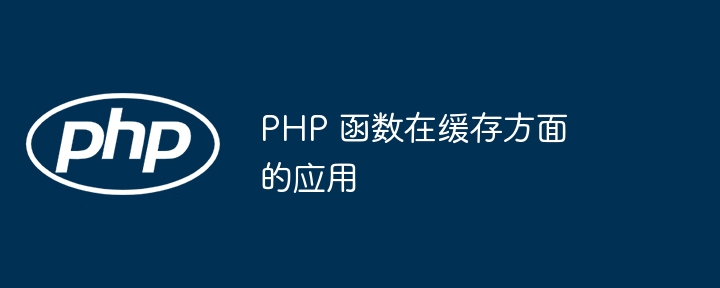
PHP cache functions improve performance by storing data in memory, including memcache(), memcache_connect(), memcache_set(), and memcache_get(). Memcached installation and configuration steps include installing, starting, and enabling auto-start on Ubuntu. A practical example demonstrates how to use PHP caching functions to get and store data from Memcached to connect to the server, store key-value pairs, and retrieve values.

Application of PHP functions in caching
Caching is a key technology to improve performance in web development. It can make frequent visits The data is stored in memory, thus avoiding repeated access to the database or other data sources. PHP provides a variety of built-in functions for caching data, simplifying cache implementation.
Commonly used PHP caching functions
Installation and Configuration
Before using Memcached, you need to install and configure it. The following steps cover installing and configuring Memcached on Ubuntu:
sudo apt-get install memcachedsudo systemctl start memcachedsudo systemctl enable memcachedPractical case
The following code Demonstrates how to use PHP caching functions to fetch and store data from Memcached:
connect('localhost', 11211); // 将数据存储到 Memcached $memcache->set('key', 'value', 0, 3600); // 从 Memcached 中获取数据 $value = $memcache->get('key'); echo $value; ?>
In this case, we connect to the local Memcached server and store the key-value pair 'key' and 'value' into the cache (valid for 3600 seconds), the value is then retrieved from the cache and displayed.
The above is the detailed content of Application of PHP functions in caching. For more information, please follow other related articles on the PHP Chinese website!